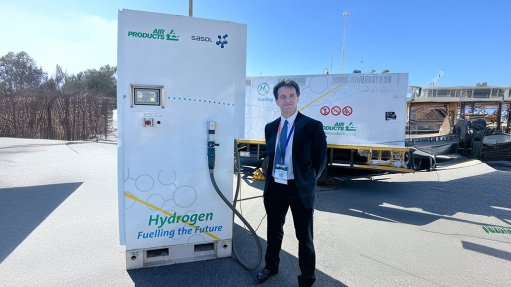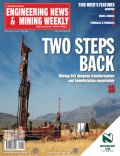Building with Integrity: Why Compliance is Critical for the Construction Industry’s Future
This article has been supplied and will be available for a limited time only on this website.
In South Africa’s dynamic and labour-intensive construction industry, compliance with legal, safety, and ethical standards isn’t just a regulatory checkbox – it’s a cornerstone of sustainable growth, worker dignity, and sector-wide trust. Yet, non-compliance remains a persistent challenge, particularly among smaller contractors and subcontractors.
"Compliance is more than a legal obligation, it is a moral and economic imperative," says Petra Devereux, Executive Director of the Master Builders Association Western Cape (MBAWC). “It safeguards workers’ rights and ensures fair play in an increasingly competitive industry.”
Non-compliance is alarmingly common and often hidden beneath layers of misclassification, underreporting, and casual labour practices. Vulnerable workers, particularly foreign nationals, bear the brunt – often exploited through lower wages and impacting health and safety compliance.
“When employers skirt their responsibilities, the consequences go beyond unpaid benefits. They compromise safety and threaten the sustainability and growth of the entire industry,” explains Chandré Abrahams, Chairperson of the MBAWC Marketing Committee.
Common issues include misclassifying employees as independent contractors to avoid taxes and benefits, skipping contributions to statutory bodies, or constantly rotating casual workers to dodge labour regulations. These practices increase risks on-site and jeopardise the wellbeing of workers.
In October 2024, the Department of Employment and Labour reported that the construction sector experiences between 1.5 to 2 fatalities weekly, highlighting it as one of the top four high-risk sectors in the country. The department emphasised the need for all stakeholders to actively combat non-compliance in the industry. However, compliance within our country’s construction industry goes beyond Health & Safety only, Abrahams emphasises.
South African contractors are required to comply with a broad set of regulations including:
- Tax and Financial Compliance: Income tax, VAT, PAYE, UIF, SDL
- Construction and Technical Regulations: CIDB, NHBRC, and adherence to SANS standards
- Health & Safety: Compliance with the Occupational Health and Safety Act (OHSA)
- Environmental & Equity: National Environmental Management Act (NEMA), B-BBEE codes
- Labour & Employment: Compliance with BIBC guidelines for wages and working conditions
Yet, many overlook the complexity or lack the resources to manage these effectively. Education remains a barrier, particularly for smaller firms unfamiliar with systems or facing financial constraints.
“We understand that running a business in today’s construction environment comes with financial pressures. However, it is important to recognise that non-compliance is ultimately more costly – to your business, your workers, and the industry at large,” adds Devereux.
While compliance may involve upfront costs, the long-term benefits far outweigh the initial investment. Non-compliance with health, safety, tax, or labour laws can result in heavy financial penalties, litigation, and even site shutdowns.
“However, being compliant is not just about avoiding penalties,” says Devereux. “It positions businesses as ethical partners, opens doors to government tenders, and improves employee retention and productivity.”
A compliant company avoids costly legal disputes, site shutdowns, or blacklisting; builds a reputation of integrity, crucial for public and corporate contracts; offers fair compensation, contributing to worker morale and retention; ensures a safe working environment, improving project outcomes and timelines and strengthens administrative systems, which support sustainable business growth.
“Furthermore, well-paid, secure workers become active participants in the economy – increasing spending, thereby driving long-term economic growth. Compliance doesn’t just protect the present; it lays the foundation for the future,” adds Devereux.
The MBAWC is actively addressing compliance gaps through education, advocacy, and engagement. It provides guidance to members on BIBC (Building Industry Bargaining Council) contributions, health and safety training, and the benefits of long-term workforce investment.
“We’re calling on all industry players, from government to private clients, to request proof of compliance,” says Abrahams. “Givers of work have a crucial role in ensuring ethical practices are a non-negotiable standard.”
MBAWC also advocates for statutory triggers that activate compliance checks when out-of-region contractors enter the Western Cape market, protecting local standards and ensuring fair competition.
Devereux emphasises that compliance must be reframed not as a burden but as a strategic investment. “I understand that it can feel expensive upfront, especially in a tough economy. But the cost of non-compliance (fines, reputational damage, missed opportunities) is far greater.”
At its core, compliance is about respect – for laws, workers, and the future of the industry. Ethical employers have a legal duty to ensure their employees are paid the legislated rates as per the collective bargaining agreement (applicable in the Western Cape).
The MBAWC encourages all industry stakeholders to uphold these values. “Together, we can build not just infrastructure, but an industry rooted in fairness, safety, and lasting value,” says Devereux.
Comments
Press Office
Announcements
What's On
Subscribe to improve your user experience...
Option 1 (equivalent of R125 a month):
Receive a weekly copy of Creamer Media's Engineering News & Mining Weekly magazine
(print copy for those in South Africa and e-magazine for those outside of South Africa)
Receive daily email newsletters
Access to full search results
Access archive of magazine back copies
Access to Projects in Progress
Access to ONE Research Report of your choice in PDF format
Option 2 (equivalent of R375 a month):
All benefits from Option 1
PLUS
Access to Creamer Media's Research Channel Africa for ALL Research Reports, in PDF format, on various industrial and mining sectors
including Electricity; Water; Energy Transition; Hydrogen; Roads, Rail and Ports; Coal; Gold; Platinum; Battery Metals; etc.
Already a subscriber?
Forgotten your password?
Receive weekly copy of Creamer Media's Engineering News & Mining Weekly magazine (print copy for those in South Africa and e-magazine for those outside of South Africa)
➕
Recieve daily email newsletters
➕
Access to full search results
➕
Access archive of magazine back copies
➕
Access to Projects in Progress
➕
Access to ONE Research Report of your choice in PDF format
RESEARCH CHANNEL AFRICA
R4500 (equivalent of R375 a month)
SUBSCRIBEAll benefits from Option 1
➕
Access to Creamer Media's Research Channel Africa for ALL Research Reports on various industrial and mining sectors, in PDF format, including on:
Electricity
➕
Water
➕
Energy Transition
➕
Hydrogen
➕
Roads, Rail and Ports
➕
Coal
➕
Gold
➕
Platinum
➕
Battery Metals
➕
etc.
Receive all benefits from Option 1 or Option 2 delivered to numerous people at your company
➕
Multiple User names and Passwords for simultaneous log-ins
➕
Intranet integration access to all in your organisation

















